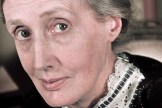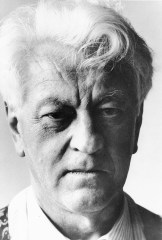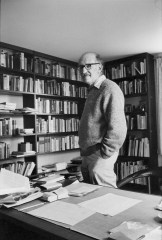
‘She Talk Her Mind’
Zadie Smith’s Wife of Willesden offers an exhilarating counterpoint to the writer's understanding of character as it emerges in her fiction.
The Wife of Willesden
by Zadie Smith
March 7, 2024 issue
Advertisement
More from the Review
Subscribe to our Newsletter
Best of The New York Review, plus books, events, and other items of interest
Edward Mendelson is the Lionel Trilling Professor in the Humanities at Columbia. His complete edition of W.H. Auden’s poems was published in 2022. (March 2024)

‘She Talk Her Mind’
Zadie Smith’s Wife of Willesden offers an exhilarating counterpoint to the writer's understanding of character as it emerges in her fiction.
The Wife of Willesden
by Zadie Smith
March 7, 2024 issue

Life, Death, This Moment of June
Mrs. Dalloway has the world-defining ambition and scope of every great epic, from Dante's Commedia to Goethe's Faust.
Mrs. Dalloway
by Virginia Woolf, edited by Anne E. Fernald
The Annotated Mrs. Dalloway
by Virginia Woolf, edited and with an introduction and notes by Merve Emre
December 8, 2022 issue

Reading in an Age of Catastrophe
George Hutchinson’s ‘Facing the Abyss: American Literature and Culture in the 1940s’
Facing the Abyss: American Literature and Culture in the 1940s
by George Hutchinson
March 7, 2019 issue

What Is the Critic’s Job?
Better Living Through Criticism: How to Think About Art, Pleasure, Beauty, and Truth
by A.O. Scott
This Thing We Call Literature
by Arthur Krystal
Mimesis: The Representation of Reality in Western Literature
by Erich Auerbach, translated from the German by Willard R. Trask, with an introduction by Edward W. Said
September 28, 2017 issue

The Genius and Generosity of Jimmy Merrill
James Merrill: Life and Art
by Langdon Hammer
December 22, 2016 issue

In the Depths of the Digital Age
Six books look at the newly public world in which practically everyone’s lives are accessible and offered for display
Pressed for Time: The Acceleration of Life in Digital Capitalism
by Judy Wajcman
Exposed: Desire and Disobedience in the Digital Age
by Bernard E. Harcourt
Magic and Loss: The Internet as Art
by Virginia Heffernan
Updating to Remain the Same: Habitual New Media
by Wendy Hui Kyong Chun
Mood and Mobility: Navigating the Emotional Spaces of Digital Social Networks
by Richard Coyne
Pax Technica: How the Internet of Things May Set Us Free or Lock Us Up
by Philip N. Howard
June 23, 2016 issue

A Different T.S. Eliot
Three new books make it possible to see more deeply than before into Eliot’s inner life
Young Eliot: From St. Louis to The Waste Land
by Robert Crawford
The Poems of T.S. Eliot, Volume I: Collected and Uncollected Poems
edited by Christopher Ricks and Jim McCue
The Poems of T.S. Eliot, Volume II: Practical Cats and Further Verses
edited by Christopher Ricks and Jim McCue
February 11, 2016 issue

Lives & Loves of the Exile
Nicolas Nabokov: A Life in Freedom and Music
by Vincent Giroud
September 24, 2015 issue

Malamud’s Secrets
Novels and Stories of the 1940s & 50s
by Bernard Malamud, edited by Philip Davis
Novels and Stories of the 1960s
by Bernard Malamud, edited by Philip Davis
April 2, 2015 issue
‘My Grasping, Greedy American Soul’
A Voice Still Heard: Selected Essays of Irving Howe
edited by Nina Howe with Nicholas Howe Bukowski, and with a foreword by Morris Dickstein
March 5, 2015 issue
Subscribe and save 50%!
Read the latest issue as soon as it’s available, and browse our rich archives. You'll have immediate subscriber-only access to over 1,200 issues and 25,000 articles published since 1963.
Subscribe now
Subscribe and save 50%!
Get immediate access to the current issue and over 25,000 articles from the archives, plus the NYR App.
Already a subscriber? Sign in